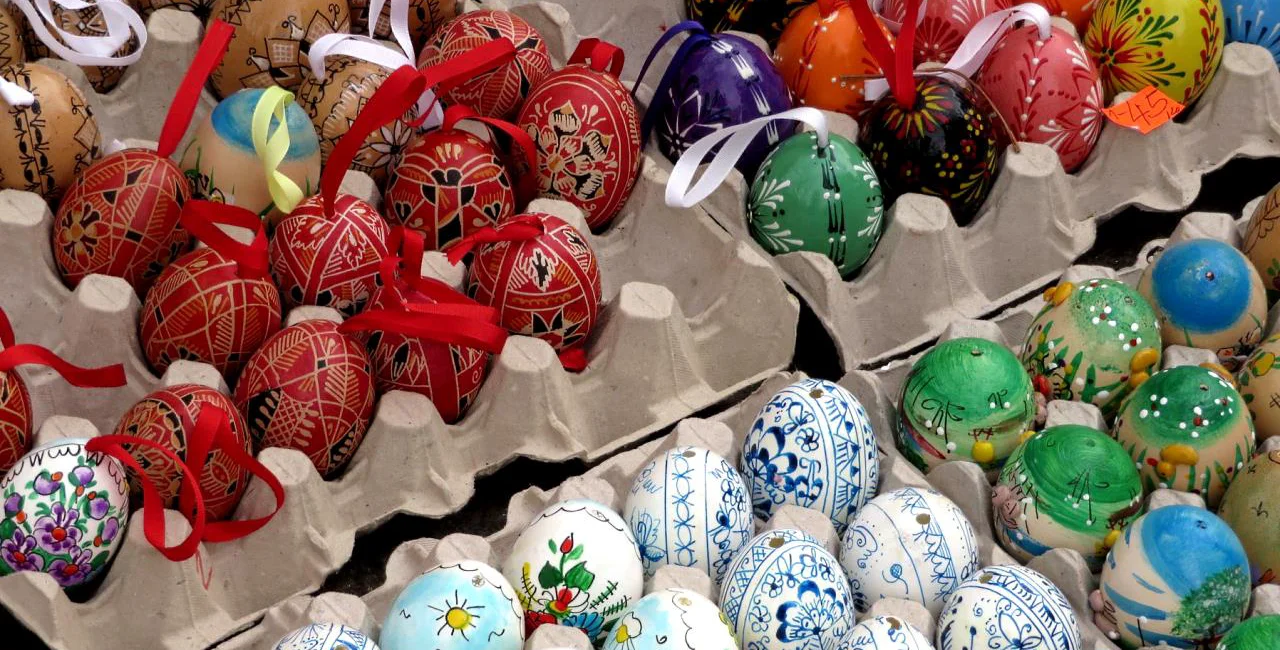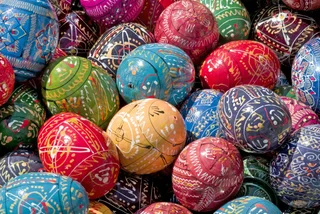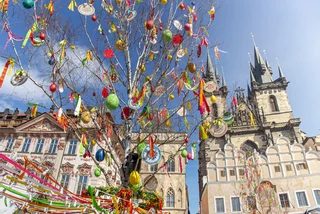Traditional Easter goods may be sold this year, according to a new opinion from the Czech Ministry of Industry and Trade (MPO). This reverses the ministry’s position from earlier in March, claiming the goods could not be sold under current coronavirus restrictions, which limit what items can be sold in shops.
Easter this year falls on Sunday, April 4, with both Good Friday on April 2 and Easter Monday on April 5 as Czech state holidays.
PARTNER ARTICLE
The Czech Confederation of Commerce and Tourism (SO ČR) announced the reversal on its website.
“After negotiations at the end of last week and during the weekend and on the basis of our Sunday public call to the government (including support from the Chamber of Commerce and Association of Czech Traditional Trade), we have just received a written opinion from the MPO that Easter goods can be sold without restrictions,” SO ČR stated.
The opinion from Pavel Vinkler, the director of the Business Environment and Internal Trade Department at the MPO, said that the goods fell into categories that were already allowed for sale. “The government of the Czech Republic enables the retail sale of standard Easter products and items. These products usually fall into the category of food, Easter decorative items into the category of household goods, and other items, such as traditional pomlázky, which are made of wicker, fall into the category of plants of the type that can be offered in florists,” he wrote.
Easter whips, known in Czech as pomlázky, are traditionally used by young men to spank young women on the morning of Easter Monday, in a ritual related to reawakening fertility after winter. While the tradition still carries on in some areas, the whips now are more often just used for decoration. They are made from braided willow twigs and festooned with ribbons.

Even in areas where the tradition is still popular, it is unlikely to take place this year due to social distancing rules. Visits to relatives, even in the same district, are only allowed to provide caregiving. People should only make necessary outings such as grocery shopping or trips to nature for exercise and sports like jogging and cycling. Churches also face restriced services, with strict limits on capacity and distancing. Many churches are holding services online and encouraging people to celebrate from home. St. Vitus' Cathedral, will be broadcasting Easter mass.
Specialty holiday items are normally sold at Easter markets and farmers markets, both of which as closed this year due to restrictions. People from rural areas, often as far away as Moravia, would come to Prague with pomlázky, hand-painted eggs, embroidery, and other decorations. Travel restrictions between districts prevent such journeys this year.
The main venues for Easter items this year are large retail chains. Many of these shops had been offering Easter-themed goods since the start of Lent on Feb. 17, but the list of items that could be sold in shops changed on March 1, when stricter rules came into effect limiting store sales to essential items. This caused some confusion as to what could still be sold.
Many large retail chains, though, continued to sell items that seemed to fall into acceptable categories.
Kaufland spokeswoman Renata Maierl said the chain offers hand-made pomlázky in three sizes. New this year, the store also has braided whips growing in a pot and other floral decorations, according to the Czech News Agency (ČTK).
Albert stores will offer bouquets and a special assortment of potted flowers, including seedlings, in addition to other non-food goods, spokeswoman Marcela Vichnarová said.
Globus PR manager Lutfia Volfová told new server Deník.cz that the store would have a wide assortment of Easter goods but would focus more on food and fresh-baked goods such as mazanec and Judas pastries (jidáše).
Not all retailers are optimistic about sales. Tesco spokesman Václav Koukolíček told Deník.cz that the sale of Easter goods would likely be negatively impacted by limited travel possibilities, school closures, and more people working from home.
Stores over 200 square meters normally would be closed on Easter Monday, but that law does not apply due to the state of emergency. The Albert chain, though, has announced it will voluntarily close so its staff can spend time with their families.












 Reading time: 3 minutes
Reading time: 3 minutes 






























